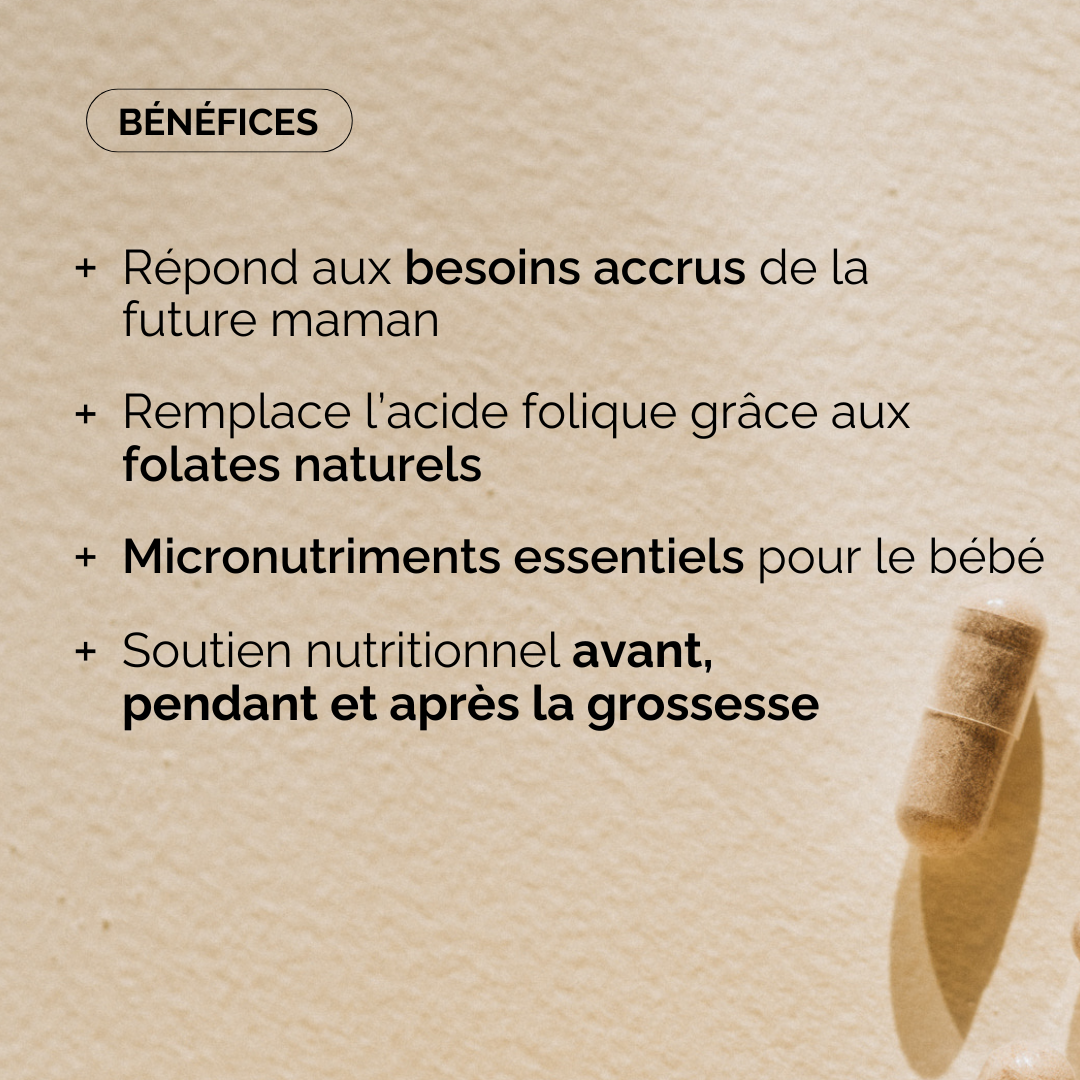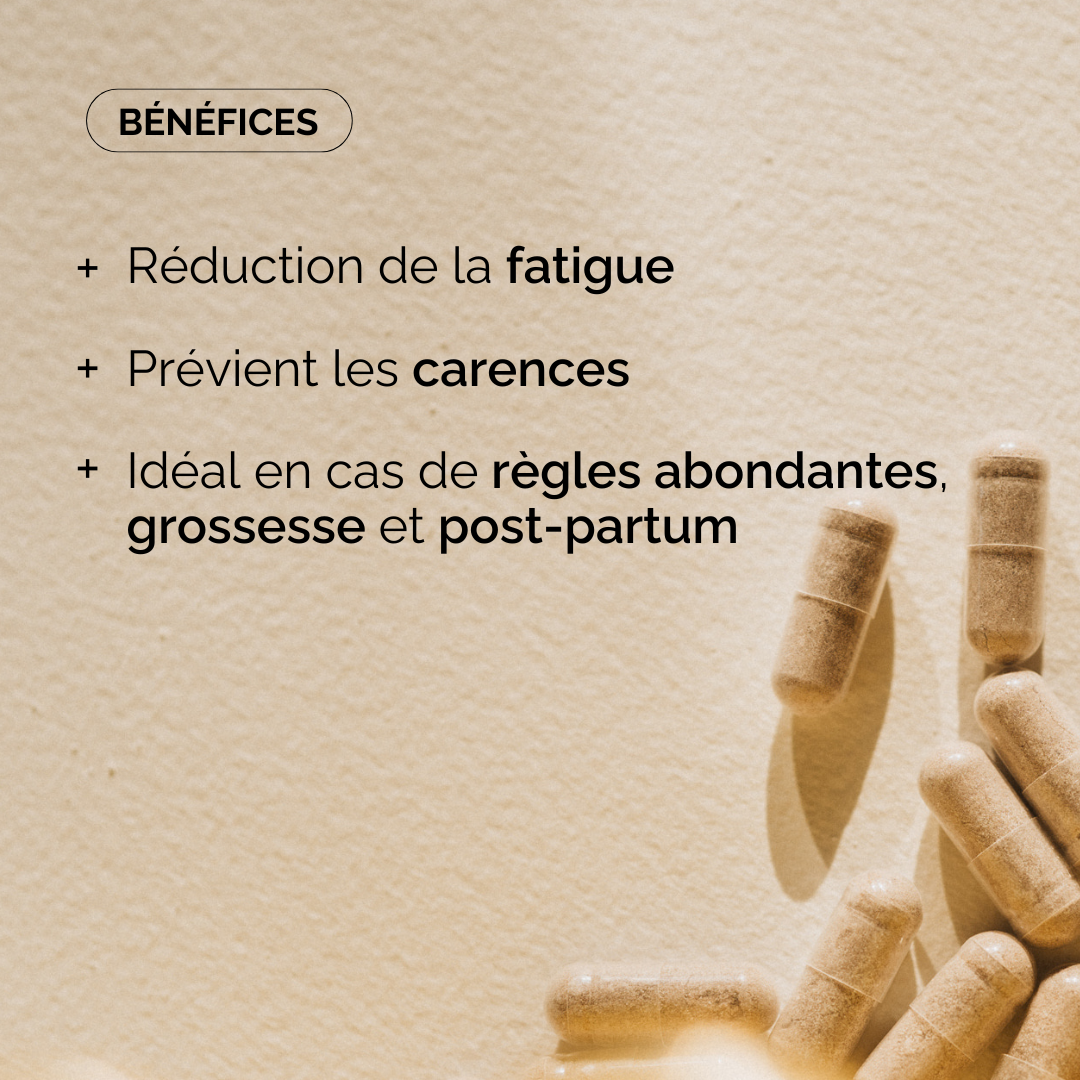
Let's face it: the first trimester of pregnancy is something else. Between the joy of discovering a new life forming within us after a positive pregnancy test and the fear of suffering a miscarriage... These first weeks of pregnancy are a veritable whirlwind of emotions and physiological upheavals for the person experiencing them. But then, what really happens during these 13 important weeks of pregnancy? How does our baby develop in the first trimester? And above all, how do we know if everything is going well? We'll explain everything in this article. Let's get started!
The first trimester of pregnancy: duration, symptoms and tests
When does the first trimester of pregnancy start and end?
The first trimester of pregnancy begins on the first day of your last period and lasts until the 13th week of pregnancy. From the first day of your last period, really? Yes! This may seem surprising, but the beginning of a pregnancy is calculated in weeks of amenorrhea (WA). That is, from the beginning of your menstrual cycle. Even if technically, you are not yet pregnant at this time. And so it is only from the third week that pregnancy begins as we understand it: when the egg is fertilized.
This first trimester is extremely important in your pregnancy journey. Even though it's still invisible to the outside world, it's THE time when many major changes take place, both for you and for the unborn baby. This is when the embryo develops the fastest, and all its vital organs lay their "foundations."
What are the symptoms of the first trimester in pregnant women?
The "first trimester" also means a whole host of physiological symptoms... Not always fun, but often a good sign. We'll decipher them for you.
- Morning sickness: causes and solutions
Ah, morning sickness in pregnant women! It's often hard to escape, as it's one of the most common symptoms of the first trimester of pregnancy (up to 80%, according to the MSD Manual ). It's called morning sickness, but it can occur at any time of day. The cause? The body's rapid increase in hCG hormone production. These pregnancy hormones can disrupt the digestive balance of pregnant women and cause these unpleasant sensations.
To mitigate them, you can:
- split your meals;
- avoid fried, fatty or spicy foods;
- consume ginger;
- drink regularly (water!).
However, if the nausea becomes so intense that it prevents you from eating, talk to your doctor promptly.
- Fatigue and pain: what is normal?
Unsurprisingly, the first few months of pregnancy can be incredibly tired—but that's perfectly normal. That's right, your body is working hard to adapt to pregnancy. It therefore needs to use up a lot of energy to do so. Also, remember that the surge in your hormone production, like progesterone, can cause a sedative effect that can leave you feeling exhausted, even after a good night's sleep.
How can you manage this? Simply by listening to your body. Rest whenever you can. And consider giving yourself a little nutritional boost by adopting a balanced diet. Or by taking a course of pregnancy supplements to boost your energy levels!
Some pain is also common, such as pain in the lower abdomen and breasts. Your uterus is stretching, your body is preparing for breastfeeding. If it remains bothersome, know that it is generally harmless. However, if it becomes too intense or is accompanied by gynecological bleeding , consult your doctor without delay.
- Other common symptoms
Wondering when pregnancy cravings start ? Well, sometimes as early as the first week of pregnancy! But you might experience other common symptoms like:
- disgust for certain foods;
- aversions to certain odors;
- acne;
- breast hypersensitivity;
- frequent urge to pee.
Granted, all these symptoms aren't always easy for the expectant mother to live with. But they are positive signs that your pregnancy is progressing normally. Stay tuned, be patient: this is all temporary, we promise.
How do I know if my pregnancy is going well in the first trimester?
When you're a mom-to-be, you want to shout "I'm pregnant!" to everyone. But you're also afraid of what might happen to you. You want everything to go well, and that's normal! Fortunately, there are plenty of tests in place to reassure you:
- An initial blood test to check that you are not carrying any diseases that pose a risk to the pregnancy and the future baby.
- Fasting blood glucose for pregnant women with a history of gestational diabetes.
- A dating ultrasound will be performed around the 8th or 9th week of amenorrhea. There, you will receive the documents for your pregnancy declaration (to be sent to Social Security).
- First trimester ultrasound, around 12 weeks of amenorrhea.
- Your monthly prenatal check-up to ensure everything is going smoothly.
- Screening for Down syndrome between the 11th and 13th week of amenorrhea. But only if you want it, as it is not mandatory, although it is 100% covered by Social Security.
How does the baby develop in the first trimester of pregnancy?
We tell you how your tiny baby is developing, week by week, during the first trimester of your pregnancy.
Weeks 1 to 4: Ovulation and implantation
- Week 1: The beginning of 40 weeks of pregnancy
As you can see, the first week of pregnancy actually begins before you even get pregnant. Because the countdown begins on the first day of your last period! Your body is preparing for possible fertilization, even though the egg hasn't been released yet.
- Week 2: Ovulation
Then ovulation finally arrives. At the end of the second week, one of your ovaries releases an egg, which travels down the fallopian tube, ready to be fertilized.
- Week 3: Fertilization of the oocyte
Fertilization occurs during the third week, when the sperm penetrates the egg. The egg then divides into several cells, continuing its short journey to the uterus.
- Week 4: its implantation in the uterus
Then, at the end of the first month, comes implantation. The egg has become a blastocyst. It attaches to the uterine wall: this is implantation, an extremely important step for the future embryo.
Weeks 5 to 8: the first training sessions
- Week 5: Formation of the umbilical cord
In the fifth week, the embryo begins to take shape. The umbilical cord develops, establishing this vital connection between the expectant mother and her baby. It allows the baby to receive the oxygen and nutrients it needs.
- Week 6: Heart begins to beat
In the 6th week, we're there: the embryo's heart begins to beat. Visible on ultrasound, this heartbeat signals the start of blood circulation. The embryo measures approximately 5 millimeters and its main organs are beginning to form.
- Week 7: Brain Development
The cerebral cortex and cerebral hemispheres begin to form. The embryo measures approximately 10 millimeters and shows the first signs of nervous system development.
- Week 8: First movements
The embryo is beginning to move. But, at 16 millimeters… You won't feel its movements yet! It weighs 1 g and its vital organs continue to develop (stomach, lungs, and kidneys). Its face is beginning to take shape: its eyes, nostrils, and lips are appearing.
Weeks 9 to 13: Accelerating Development
- Week 9: Appearance of fingers and toes
In the 9th week, their arms and legs begin to grow longer. Their fingers and toes, initially resembling tiny buds, are slowly forming. This is an important step in your future baby's motor skills!
- Week 10: Increased heart rate
The fetus's heart is racing! It's now beating at about 170 beats per minute. This rapid rate supports the development of all the fetus's vital systems, making it look more and more like a tiny baby.
- Week 11: Transition from embryo to fetus
At the 11th week, it's official: the embryo becomes a fetus. Its head is still large compared to the rest of the body, but it's beginning to straighten and take shape. The facial features are becoming more defined, and its eyes are now in front, firmly in place. It measures approximately 45 millimeters and weighs 10 grams.
- Week 12: Nail Growth
During the 12th week, the fetus's nails begin to grow, as well as its eyelashes and hair. It measures 60 millimeters, and all its vital organs are now formed. They will continue to develop over the next few months.
- Week 13: Spine Building and Thumb Sucking
13th week, the last of the first trimester! The spine and ribs are forming. The fetus measures about 75 millimeters and weighs about 30 grams. Its bones are beginning to harden, and it's also developing reflexes, like... thumb sucking. Yes, your baby sucks their thumb in your womb. Crazy, right?
Now you're a mom-to-be who knows everything there is to know about the first trimester of pregnancy! One thing's for sure: it's a time of tremendous change. For both you and your baby. There's no time to be bored during these first weeks of life in utero! But with the support of those around you and your medical team, you'll lay the foundation for a peaceful and fulfilling pregnancy. We hope it's as smooth as possible.
Want to anticipate and discover what is happening at 2nd trimester of pregnancy and 3rd trimester of pregnancy ?










